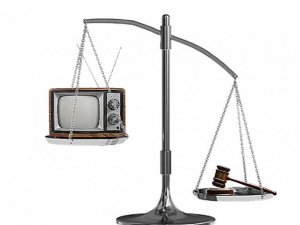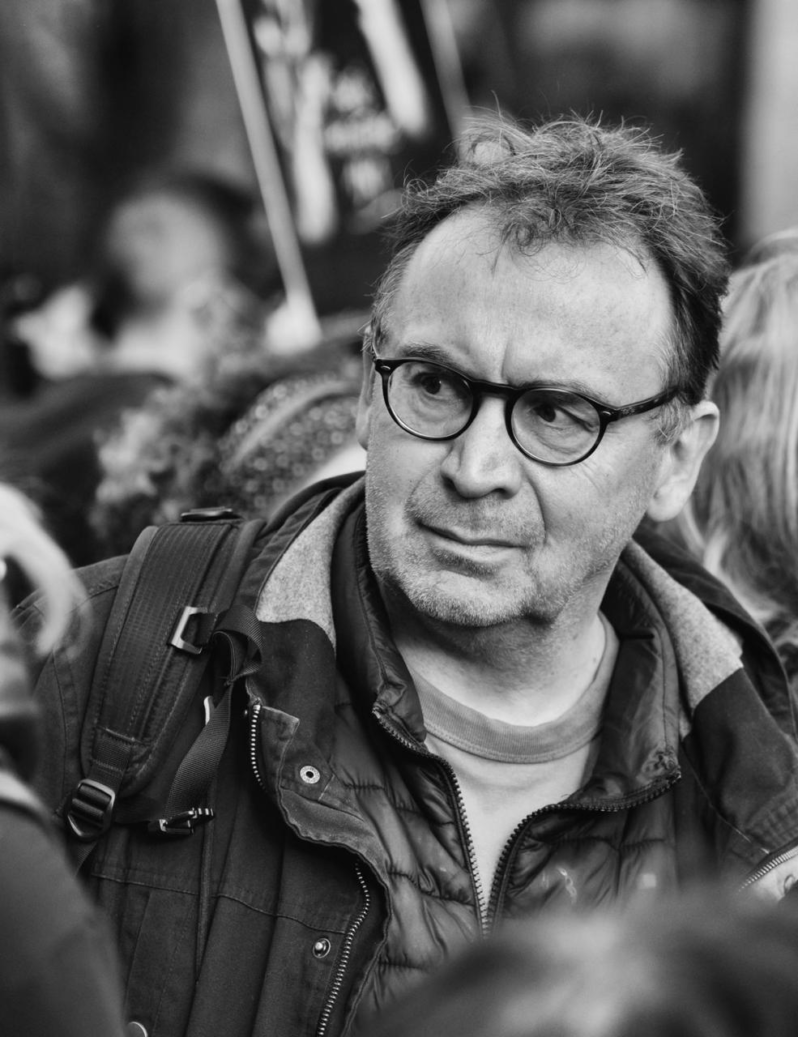The Media and the Judiciary: Prestige and Preventive Detention

Editor’s Note: In a several-part series, The Legal Agenda examines the testy relationship that has developed between the judiciary and the media in Lebanon. In this part, Nermine Sibai discusses the first of three strategies adopted by the judiciary to deal with media coverage of their profession. This strategy has been to deny that the media has a right to cover the judiciary in any way that might compromise the dignity/prestige of the judiciary or undermine confidence in it. Sibai sheds light on this approach through the examination of the circumstances, principles, and pretexts behind the two draft law espousing this strategy that were circulated in 1998 and 2008. The second strategy is discussed by Saada Allaw while the third is critically assessed by Nizar Saghieh and Perla Choueiry.
Prestige and Preventive Detention
Attempts to pass legislation granting the Lebanese judiciary immunity against media criticism reached a peak in the 1990s under Justice Minister Bahij Tabbara. According to the justifications he gave for preparing the 1998 draft law on the subject, the legal move “related to certain crimes against the judiciary and the actions and decisions that the judiciary issues”. Tabbara proposed this law in order to protect what he called the “prestige” (haybah) of the judiciary, by creating a new offense punishing anyone who “undermines confidence” in judicial acts and decisions, or offends the dignity or the independence of the judiciary. The proposed law also toughened the penalty for trying to influence a judge, either orally or in writing. In addition, media commentaries of a technical nature and acts designed to amend, overturn or reconsider a judicial ruling were exempt from punitive measures.
In a recent interview with The Legal Agenda, Walid Naqib, a lawyer who helped draft the legislation as adviser to Tabbara, recalled the circumstances that made the legislation necessary. “Media attacks on the judiciary were severe in that period,” he said. Naqib further stated that “the Ministry of Justice had to give the judiciary immunity by law, not because the judiciary is infallible but because mistakes must be corrected from within the judiciary”.
The legislative intent behind the proposal considered that the dignity, reputation and prestige of the judiciary must be protected by legislation in order to reinforce judicial independence and strengthen democracy, the same way legislation protects the prestige of the army and prevents any interference in its affairs. It is noteworthy that at the time, the draft legislation was significantly criticised by one of the most prominent former judges, the late Abdel Basset Ghandour. Ghandour said that judicial independence and confidence in the judiciary could not be strengthened by imposing new penalties, but rather, by enabling the judiciary to acquire a credibility that would in turn give people confidence in its decisions.[1]
The justification for the draft legislation was essentially based on the positions taken by the Supreme Judicial Council (SJC) at that time. Top among them was a SJC statement issued on February 19, 1998, in which the council referred to “the frequent [public] discussion of judicial matters”, and to the fact that sound judicial practice required that there be no interference designed to undermine confidence in the judiciary.
Nakib argues that the article imposing penalties for undermining the judiciary did not restrict freedom of expression. He said it was an article borrowed from French law which was still in effect and did not invoke any problems. Journalist Amal Makarem,[2] noted that what makes sense is to penalize political intervention and acts of corruption that have afflicted the judiciary, since confidence in the judiciary is undermined through intervention itself and not by discussing it or exposing it.
In other words, in lieu of enforcing measures of transparency and accountability, and exposing any influence-peddling or attempts to curry favour, the draft law -if passed- would have facilitated the concealment of the judiciary's flaws, which could then only be remedied within the judicial establishment. Although the draft had the approval of the SJC and, according to Nakib, was unanimously endorsed when it was discussed in the committee set up in the Ministry of Justice to modernize the laws, the election of President Emile Lahoud shortly after and the ensuing change in the government meant that the law did not make it to parliament.
Polishing the Image of the Judiciary at the Expense of Freedom of Expression
In 2008, Lebanon witnessed a similar tug-of-war between the media and the judiciary. This time, it assumed more draconian dimensions. The 1998 draft law was revived but with stricter provisions. Former Justice Minister Ibrahim Najjar says that it was a very difficult period for the judiciary because appointments had been obstructed and delayed for many years. The SJC was “about to…fall apart because of resignations and retirements, which prevented it from meeting the quorum legally needed for it to convene”, he said. Meanwhile, some media outlets were undertaking concerted coverage of judicial developments. This coverage included several episodes of the program Corruption (produced by Ghada Eid and broadcasts on Lebanese local station New TV) that tackled the cases of several judges.
It was against the background of these developments that the SJC and the General Assembly of Judges issued statements on July 14 and 17, 2008, asking the state prosecutor to initiate immediate prosecutions of anyone who feels enticed to discuss the judiciary, either as an institution or in the form of individual judges.[3] The two judicial bodies also advocated overriding the immunity of journalists, lawyers, and members of parliament in cases where the judiciary was under attack. The council went so far as to call for the implementation of preventive detention for publication offenses, by amending the law that governs publications. In doing so, the council noted that preventive detention for journalists is barred only on condition that, in exercising their freedom of speech, they do not violate the privacy of citizens in general, and the immunity of judges in particular.[4]
Lawyer and editor of The Legal Agenda, Nizar Saghieh, notes that these two statements and calling for preventive detention reflect a “punitive spirit” that itself preempts the results that might emerge from a trial.[5] In the wake of those two statements, the draft legislation of 1998 was revived and on September 9, 2008, Najjar, the then-minister of justice, sent a request to his ministry's Legislation and Consultations Committee to inquire “whether the articles proposed in the 1998 draft could still be proposed, ten years after they were drafted, or whether it was possible to develop them further”.
In light of the two judicial statements mentioned earlier, the Legislation and Consultations Committee saw fit to make some amendments to the draft that would make the latter, according to the committee, compatible with reality. The draft it produced included stricter provisions in some of its articles compared to the attempt a decade earlier. The maximum penalty for the crime of undermining confidence in the judiciary was raised to three years imprisonment, and the fine prescribed was more than doubled with a maximum time lapse for prosecutions being extended from three to six months. The “prestige mania” reached its peak when the amended draft adopted the recommendations of the SJC on preventive detention, permitting such detention in the case of publishing offenses against the judiciary or against a judge, thereby making a distinction between those offenses and other publishing offenses. However, in this instance, muzzling freedom of expression was based on new arguments, the most prominent of which was the “duty of discretion”. The SJC justified its demand for introducing preventive detention on the grounds that the judges’ duty of discretion prevented judges from exercising their right of reply to defend themselves if they were subjected to media attack or criticism. This further meant the media should remain silent, following the example of the judges.
Like its previous one, this draft did not see the light of day because there was no consensus between the various branches of government on the different articles of the law. Najjar told The Legal Agenda that he had a duty, as the then-minister of justice, to protect the judiciary from political and media pressure, although he says he had reservations at the time about the preventive detention article in particular. As a result, Najjar suggested that the draft legislation be omitted from the government's agenda. Apparently, subsequent events helped ensure that the draft was withdrawn from discussion without any confrontations: Judicial appointments were completed and Najjar said he suggested raising the salaries of judges and expanding the assets of the Judges' Cooperative Fund from four billion to ten billion Lebanese pounds.
This article is an edited translation from Arabic.
____________
[1] See: Abdel Basset Ghandour's comment on the draft legislation, the editor-in-chief of the People's Rights (Huquq al-Nas), supplement to Ennahar newspaper, dated April 15, 1998.
[2] Idem.
[3] See Nizar Saghieh’s, “The Supreme Judicial Council Wears a New Sash: Arrogance”, al-Akhbar newspaper, dated September 29, 2009.
[4] See Nizar Saghieh’s, “Exposing Corruption is Right Because it is a Duty”, al-Akhbar newspaper, dated April 9, 2010.
[5] See note 3 above, idem.
[6] Idem.



